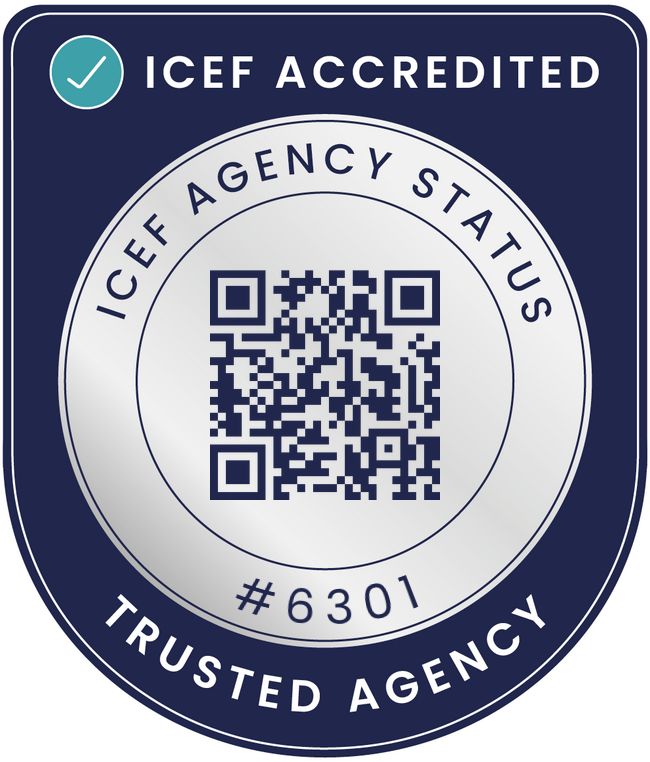 Shiva Krishna
Shiva Krishna

Pursuing an MBBS in Germany for Indian students is becoming increasingly popular due to Germany's high-quality medical education, low tuition, and strong healthcare system. Some of the requirements for Indian students who want to study MBBS abroad are passing the NEET exam and being able to communicate in German well (Study in Germany).
This guide provides detailed information on how to study MBBS in Germany, including university options, fees, scholarships, entrance exams, and the recognition of the degree in India.

Germany offers several advantages for international medical students:
High-Quality Education: German universities offer excellent medical education with hands-on training and research opportunities.
Low Tuition Fees: Most public universities charge very low semester fees, making studying affordable. Career Gyan also assists with student loans.
Post-Graduation Opportunities: After graduation, students can work in Germany’s advanced and well-organized healthcare system.
Cultural Experience: Studying in Germany allows students to experience its rich culture and learn the German language.
Several renowned universities in Germany offer medical programs:
|
University |
Location |
Semester Fee (EUR) |
Approx. (INR) |
|
Ludwig Maximilian University of Munich |
Munich |
150 |
14,250 |
|
University of Heidelberg |
Heidelberg |
150 |
14,250 |
|
University of Freiburg |
Freiburg |
150 |
14,250 |
|
RWTH Aachen University |
Aachen |
300 |
28,500 |
|
Technical University of Munich |
Munich |
6,000 |
5,70,000 |
Note: Semester fees are approximate and subject to change. It's advisable to check the university's official website for the most current information.
Indian students who want to study MBBS in Germany must meet these requirements:
Educational Qualification: You should have completed 12th grade with Physics, Chemistry, and Biology.
NEET Qualification: A valid NEET score is required to pursue MBBS abroad and to practice medicine in India later.
Language Proficiency: Most universities teach in German, so you need to be proficient in German. Tests like TestDaF or DSH are usually accepted.
Additional Exams: Some universities may require additional exams like the TMS (Test for Medical Studies) or HAM-Nat.

Yes, NEET is mandatory for Indian students who desire to practice medicine in India after completing MBBS in Germany. The National Medical Commission (NMC) requires a qualifying NEET score for eligibility to appear for the Foreign Medical Graduate Examination (FMGE) or the National Exit Test (NExT). The minimum NEET qualifying score depends on the category: 50th percentile for general, 40th percentile for OBC/SC/ST, and 45th percentile for PwD candidates.
While many German universities may admit students without NEET, Indian students must clear it before enrolling if they intend to return to India for practice. NEET ensures recognition of your foreign medical degree and smooth registration with the medical council. Preparing for NEET in advance allows students to focus on German language proficiency and other admission requirements without facing delays.
German medical schools use different selection tools. Common ones include:
TMS (Test for Medical Studies): An aptitude test that many universities accept to improve admissions chances. It measures reasoning, memory and spatial skills rather than factual medical knowledge.
HAM-Nat: A natural sciences test used by several universities to assess biology, chemistry, physics and math knowledge.
Feststellungsprüfung (FSP): A university-specific assessment after completing a preparatory course (Studienkolleg).
Note: Not all universities require these exams. It's crucial to check the specific requirements of each institution.
The cost of MBBS in Germany depends on whether the university is public or private.
|
Cost Item |
Germany (EUR) |
India (INR) approx. |
|
Semester/Admin Fees |
150–350 |
14,250–33,250 |
|
Living Expenses (monthly) |
850–1,000 |
80,750–95,000 |
|
Living Expenses (annual) |
10,200–12,000 |
9,69,000–11,40,000 |
|
Health Insurance & Miscellaneous |
900–2,000 |
85,500–1,90,000 |
|
Total Annual Cost |
10,500–12,000 |
9,97,500–11,40,000 |
|
Cost Item |
Germany (EUR) |
India (INR) approx. |
|
Tuition Fees (per semester) |
1,000–10,000 |
95,000–9,50,000 |
|
Living Expenses (annual) |
10,200–12,000 |
9,69,000–11,40,000 |
|
Health Insurance & Miscellaneous |
900–2,000 |
85,500–1,90,000 |
|
Total Annual Cost |
15,000–25,000 |
14,25,000–23,75,000 |
Contact our experts at Career Gyan to calculate your MBBS budget in Germany.
Several scholarships are available for Indian students to pursue MBBS in Germany:
DAAD Scholarships: The German Academic Exchange Service pays for tuition fees, living costs, and travel expenses.
Heinrich Boll Foundation Scholarships: For students committed to environmental and social issues.
Erasmus+ Scholarships: Provide chances for students to study in different European countries.
University-Specific Scholarships: Many German universities offer merit-based scholarships for international students.
Note: Scholarship availability and eligibility requirements vary. It's best to check with the right institutions.
Quality Education: German medical universities are known for having very high academic requirements.
Affordable Tuition: Public colleges and universities offer little or no tuition.
Job Opportunities: Graduates might find a job in Germany's health care system (Chancekarte & others).
Cultural Experience: Learning about German culture and language.
Global Recognition: Medical degrees from Germany are accepted all around the world.
Language Barrier: Proficiency in the German language is essential for communication with patients and faculty.
Admission Competition: Limited seats and high competition for medical programs.
Cultural Adjustment: Adapting to a new educational system and culture can be challenging.

The application process for MBBS in Germany involves:
Researching Universities: Look for universities that provide medical programs and check out their specific requirements.
Preparing Documents: Collect the important documents, such as academic transcripts, NEET scores, language proficiency, and certificates.
Applying Online: Submit the applications through the university's official portal or Uni-Assist.
Appearing for Entrance Exams: If required, take the necessary entrance exams.
Visa Application: Once accepted, apply for a student visa at the German embassy.
Note: Timelines and procedures may differ. It's very important to look at each university's official website for more information.
Ready to start? Schedule a call with Career Gyan to map deadlines and test prep.
Pursuing MBBS in Germany for Indian students combines world-class medical education, practical clinical training, and affordable tuition with the chance to experience a rich cultural environment. Students must meet language requirements, eligibility criteria, and NEET qualifications to practice in India. However, the long-term benefits, such as global recognition of the degree, research opportunities, and exposure to advanced healthcare systems, make it a very rewarding path.
Contact our experts at Career Gyan to navigate applications, secure scholarships, and kickstart your medical career successfully.
Pursuing higher education in Medical and STEM (Science, Technology, Engineering, and Mathematics) fields opens doors.
Membership


Accreditation

Countries
2025 © All rights reserved by careergyan.co